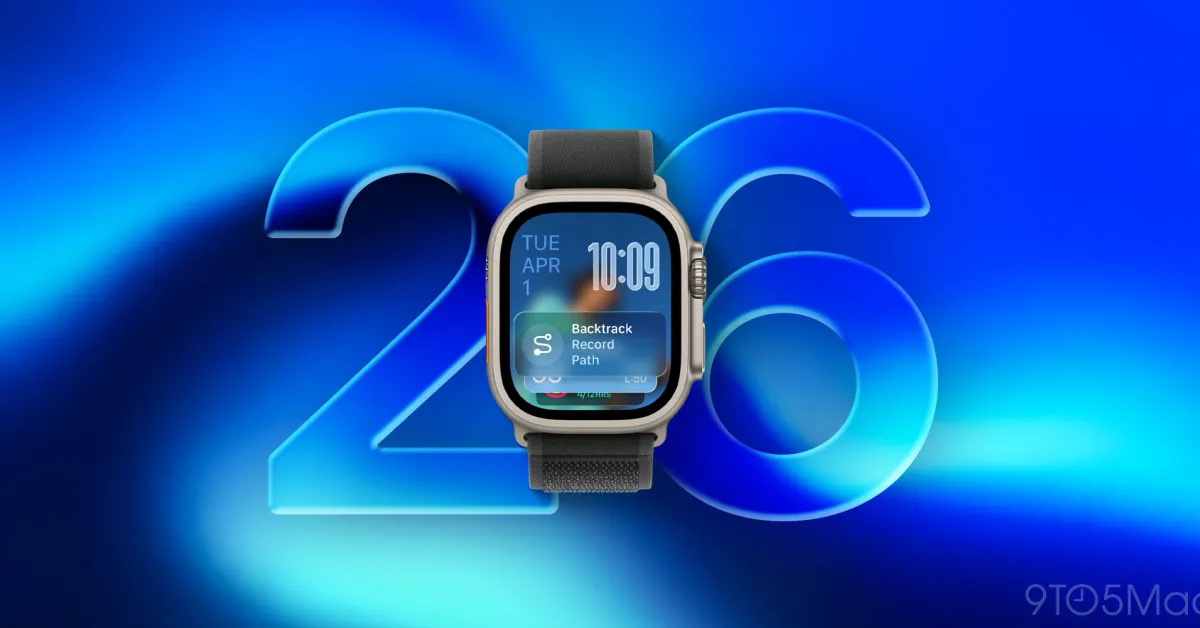
For almost all car buyers, driving off the lot is the first big hit to their wallet because depreciation is immediate. On average, a new vehicle loses around 20% of its value in the first year and more than 40% within five. That’s always tough to swallow. But not all brands are created equal when it comes to holding onto their worth. Some cars practically evaporate in value, while others manage to stay surprisingly strong in the used market.
The difference comes down to mostly three factors: reliability, demand, and brand reputation. Vehicles with proven durability, broad buyer appeal, and strong track records for low-cost ownership consistently command higher resale prices. That’s why brands like Toyota, with its bulletproof Tacoma and 4Runner, and Honda, with the ever-reliable Civic and CR-V, are resale champs. On the flip side, luxury sedans and niche brands often sink more quickly, with models from Jaguar and Maserati plummeting in value as maintenance costs and limited demand catch up.
For those thinking long-term, picking a brand with strong resale value can save thousands when it’s time to trade in or sell. With that in mind, we’ve rounded up the 13 car brands that deliver the best resale value overall, and the reasons why they consistently rise to the top.
At the very top of the list is Toyota. It’s the benchmark. According to CarEdge data, the brand retains an impressive 63.6% of its value after five years, making it the top-performing automaker in resale strength. It’s a direct reflection of why Toyota vehicles are a staple in driveways across the United States.
The secret to Toyota’s resale dominance starts with its reputation for durability. Models like the Tacoma, 4Runner, and Camry have decades of proven reliability, and buyers know they can trust a used Toyota to keep running for another 20 years, at least most of the time, without bringing costly repairs into play. That confidence creates demand, which directly translates to higher resale prices. On top of that, Toyota’s conservative design updates and steady parts availability make even older models feel relatively current and easy to maintain.
Another major factor that catapults Toyota to the top is that its clientele often takes care of their cars because they know they’re long-term investments. Toyota vehicles have strong fuel economy, solid safety ratings, and a reputation for outlasting competitors. Drivers see more value in keeping them pristine. Put simply, Toyota has built an ecosystem where reliability and owner behavior align — a perfect combo for unmatched value retention.
Dodge RAM has also carved out a serious spot in the resale value conversation, holding on to about 62.0% of its worth after five years, according to CarEdge averages. That puts it right behind Toyota in the rankings, which is no small feat given how competitive the truck market is. It means buyers know that a used RAM still brings plenty to the table, and that demand keeps prices high long after the initial sale.
The brand’s strength in resale largely comes down to the truck segment itself. Pickups have a unique advantage in the used market because they’re practical workhorses in addition to lifestyle vehicles. A truck that’s reliable, powerful, and versatile has long-term value baked in, and RAM has pretty much nailed that formula. Models like the RAM 1500 are at the top of the list because they combine towing and hauling capability with an interior that feels more premium than utilitarian, which helps them appeal to both jobsite buyers and families.
RAM’s styling updates and tech features also play a role. The brand has leaned into bold designs and cabin comfort, creating trucks that age gracefully in terms of looks and usability. Overall, they balance muscle with refinement, and the market rewards it.
Honda is third because, over the years, it has built its reputation on delivering cars that seem to outlast everything else on the road. According to CarEdge, Honda vehicles retain around 60.7% of their value after five years, a figure that keeps the brand firmly planted in the upper tier of our resale rankings. For everyday drivers, that means buying a Honda is a safe and easy investment to make.
The secret sauce lies in Honda’s relentless focus on reliability. Models like the Civic, Accord, and CR-V have a significant history, proving they can rack up hundreds of thousands of miles with nothing much more than dirt-cheap routine maintenance costs. That track record makes used Hondas hot commodities, because buyers know they’re getting something dependable and affordable.
Another factor is Honda’s wide demographic appeal. The brand balances efficiency, safety, and practicality in a way that fits families, commuters, and car enthusiasts. Honda also tends to keep its designs clean and timeless rather than flashy, which means a five-year-old Civic doesn’t feel outdated next to the newest model in the showroom. Combine that with strong fuel economy and affordable upkeep, and it’s clear to see why the resale value is so excellent.
Mazda has quietly become one of the most impressive brands in terms of long-term value, with CarEdge estimating a 60.4% value hold after five years. That puts it just behind Honda and ahead of Subaru. It’s a strong position for a brand that’s often seen as a stylish alternative to mainstream automakers.
The key to Mazda’s resale strength comes down to design and engineering. Mazda has carved out a niche by building cars that feel more premium than their price tag suggests. Models like the Mazda3 and CX-5 are engaging to drive, highly successful for the brand, and feature interiors that could pass for entry-level luxury. The same goes for the CX-90, another standout three-row SUV. The combination of these aspects keeps demand high on the used market because buyers know they’re getting a lot of car for the money.
Reliability, again, plays a massive role. While Mazda doesn’t sell in the same volume as Toyota or Honda, its vehicles consistently earn praise for low maintenance needs and longevity. The brand’s clean, modern design language also looks fresh well into resale years. Put it all together, and Mazda offers something unique: a car that feels upscale and fun to own, while still delivering the kind of resale value that rivals Toyota and Honda.
Subaru has certainly built a cult-like following over the years, and that loyalty shows up in the resale numbers. Value retention after five years is at 58.9% for the company on average, according to CarEdge. Subaru consistently exceeds expectations with long-term value. That’s a big reason why models like the Outback and Forester are Subaru models to consider and command such strong prices in the used market.
A big driver of Subaru’s resale performance is its standard all-wheel drive across nearly the entire lineup. For buyers in colder climates or those who spend time on rugged back roads, AWD is essentially a necessity. That built-in practicality means demand for used Subarus stays strong, especially in regions where snow and ice are part of daily life.
Reliability and safety also play key roles. Subaru has made a name for itself with high crash-test ratings and durable boxer engines that can keep running well past 200,000 miles with proper care. Add in strong resale demand from outdoorsy buyers who value utility over flash, and you’ve got a formula that works.
Fiat might not be the first brand many consumers think of when it comes to resale value, but the numbers tell a different story. With an average 57.1% retention after five years, according to CarEdge, Fiat beats out bigger names like GMC and Mitsubishi. It’s a surprising showing for a brand often known more for style and flair than long-term ownership.
So why does Fiat manage to hold its ground in resale? For starters, Fiat vehicles appeal to a niche audience that values European design and compact size — the Fiat 500e is one of the smallest cars available in the United States. Models like the 500 and 500X may not be high-volume sellers, but their quirky looks and efficient city-friendly dimensions keep demand steady in the used-car market, especially in places where parking is tight and gas prices are high.
Another factor is limited supply. Fiat doesn’t flood the market with inventory the way Toyota might, which helps prevent steep depreciation. Buyers looking for something unique, affordable, and a little fun are willing to pay more on the resale side to snag one. Its blend of distinct styling and rarity really gives it more staying power than many expect.
GMC has long positioned itself as the more premium sibling to Chevrolet, and that strategy pays off on the resale side of things. Per CarEdge, GMC vehicles hold on to about 56.6% of their value after five years, which puts the brand comfortably in the upper tier of long-term performers. That’s no accident, either. GMC trucks and SUVs have carved out a reputation for blending work-ready toughness with a slightly upscale edge.
The Sierra pickup and Yukon SUV are the stars of the lineup when it comes to value retention. Both compete directly with higher-end options from Ford and Ram, but GMC’s Denali trim levels push them into luxury-lite territory. That means used buyers aren’t just shopping for utility, but they’re also getting premium materials and comfort.
Durability is also a consideration. GMC trucks are engineered to handle heavy towing and hauling, especially with the Sierra, as it’s considered one of the most powerful and durable GMC trucks ever made. That capability doesn’t disappear after a few years of ownership. Combine that with steady demand for full-size SUVs and pickups in the used market, and GMC vehicles remain hot commodities.
Mitsubishi is up next, and while it may not carry the same weight in the United States marketplace as Toyota or Honda, it still manages to put up respectable resale numbers. With CarEdge estimating 55.4% value retention after five years, the brand lands in the middle of the pack.
Part of Mitsubishi’s resale strength comes down to affordability. Models like the Outlander and Eclipse Cross are priced aggressively compared to rivals, and that lower initial cost helps them hold a higher percentage of value down the road. Buyers looking for a practical, budget-friendly SUV in the used market often find Mitsubishi appealing because they can get modern features and solid warranty coverage without overspending.
The brand’s focus on SUVs also plays a role. Mitsubishi’s lineup is heavy on crossovers and utility vehicles, which aligns with the used market demand. And while Mitsubishi isn’t known for cutting-edge luxury or performance, it does offer decent reliability and long warranties, which help reinforce buyer confidence.
Hyundai has transformed its reputation over the past two decades, and the brand’s resale values prove just how far it’s come. According to CarEdge data, Hyundai vehicles retain about 54.6% of their value after five years, which puts them ahead of rivals like Kia and places them in the conversation and ultimately on our list.
The turnaround is largely thanks to quality and design. Modern Hyundai models like the Tucson, Santa Fe, and Elantra are no longer seen as budget choices. They’re fairly well-equipped, stylish, and packed with tech that used car buyers actively seek out. That means a five-year-old Hyundai feels current, and that drives stronger resale prices.
Hyundai’s market-leading warranty also plays a role. Buyers shopping used know that these cars often come with a portion of the 10-year/100,000-mile powertrain warranty still intact, which is a huge confidence booster. Reliability scores have steadily improved, too, reinforcing the idea that Hyundai cars aren’t just inexpensive upfront but also built to last.
By blending affordability, long warranty coverage, and competitive features, Hyundai has built resale value into its identity.
Kia has followed a similar trajectory to Hyundai, steadily building credibility and climbing the resale charts over the past decade. With an average 54.0% value retention after five years, according to CarEdge, Kia sits just behind Hyundai but still ranks among the top brands when it comes to holding value. For a company that was once dismissed as purely budget-focused, that’s pretty solid.
The strength of Kia’s resale comes from how competitive its lineup has become. Models like the Telluride, Sportage, and K5 offer sharp styling, strong performance, and features that rival much more expensive brands. The Telluride, in particular, has been one of the most successful models in Kia’s history. Demand for it on the used market is so strong that resale values remain unusually high compared to other midsize SUVs.
Kia also benefits from offering one of the best warranties in the industry, a major selling point for second-hand buyers who want added peace of mind. On top of that, Kia has made strides in quality, with interiors and tech packages that feel a cut above their price range. Taken together, Kia has rebranded itself as a smart buy.
Mini is up next, and sits in a unique position in the automotive world. It’s part of BMW’s family, but it carries its own personality and appeal. That combination pays off in resale, with an average 53.0% value retention after five years, per CarEdge data. Sure, Mini lands just outside the top 10, but it still outperforms plenty of mainstream brands.
What keeps Mini’s resale strong is its identity. Buyers aren’t just picking up a used Cooper or Countryman for transportation. They’re buying into a brand with character. Mini’s distinctive design, go-kart handling, and premium touches give its cars staying power in the used market. There’s a built-in audience that loves the brand’s playful spirit.
Reliability has historically been a mixed bag for Mini, but that hasn’t stopped enthusiasts from seeking them out. Because new Minis tend to be priced on the higher side of the small-car segment, used buyers see strong value in picking up one a few years old. Add in BMW’s engineering influence, stylish interiors, and a fun-to-drive reputation, and Mini models manage to hang onto more of their worth than drivers might expect.
Of course, Ford is one of the biggest names in the market, and its resale numbers reflect its broad appeal. CarEdge estimates the brand’s five-year value retention at 51.3%. Ford sits behind Mini but still ranks among the better half of mainstream brands. Strong-selling models like the F-150 and Bronco are key drivers behind that performance, and they help Ford stay competitive in resale value across the board.
Trucks and SUVs are Ford’s strongest assets. The F-150 has been one of America’s best-selling vehicles in recent years, even though it was dethroned at the top spot by the RAV4, and that demand carries directly into the used market, keeping resale prices high even after years of work and mileage. The recently revived Bronco has also proven to be a resale darling with its mix of retro-inspired design and off-road capability.
Ford’s reputation for capability and variety helps a bit, too. From heavy-duty Super Duty trucks to family haulers like the Explorer, Ford builds vehicles that cover a wide spectrum of needs, which means there’s always a strong pool of buyers looking for them used.
Chevrolet rounds out the list with an average 50.9% value retention after five years, staying just above the halfway mark in
CarEdge
‘s assessment. Chevy has some standout models that rise well above the brand’s overall average. For example, the Silverado pickup and the Corvette sports car are consistently recognized for their ability to hold value, and they give Chevrolet a strong foothold in the resale market.
The Silverado is Chevy’s biggest resale star, competing head-to-head with the Ford F-150 and RAM 1500. Its proven durability, wide availability of trims, and strong towing capacity keep it in high demand for both work and lifestyle buyers. Meanwhile, the Corvette is a different kind of icon. It’s one of the rare sports cars that not only maintains value but often surprises owners with how little it depreciates compared to rivals.
Chevrolet’s SUV lineup also helps its resale profile. Models like the Tahoe and Suburban are staples for families and fleet buyers, and that steady demand carries over into the used market. While some of Chevy’s sedans haven’t held value as well, the brand’s dominance in trucks and performance cars ensures it remains a solid player.
We really dug into the numbers when measuring resale value. Our research pulled from trusted sources like Kelley Blue Book’s Best Resale Value Awards, J.D. Power’s Residual Value Awards, and CarEdge’s depreciation studies. These outlets track specifically how much value a vehicle hangs on to after five years, which is the sweet spot for resale math.
Additionally, instead of spotlighting one-off models, we looked at brand-level averages. That way, the rankings reflect a company’s overall ability to deliver vehicles that age well. We also factored in consumer sentiment, reliability records, and models that consistently top the resale charts. This final list of automakers truly keeps paying it forward to drivers after they take the car off the lot.



